Allergies can be a challenge in many areas of life and if you are selecting houseplants to enjoy, you want to be sure that they won’t affect any sensitivities you or loved ones may have.

Succulents are a popular, easygoing type of houseplant that can liven up any home with their pert leaves and unusual shapes, but are succulents good for allergies?
In This Article – We will share the essentials on succulents and allergies, including potential beneficial effects to people living with allergies, the succulents to choose if you have allergies, and succulents you may want to avoid.
Succulent plants are an excellent choice if you have skin or respiratory allergies
Succulents are a great family of plants to choose from if you or a relative are an allergy-sufferer and their beauty and diversity mean that your health issues do not have to limit your enjoyment of delightful plants.
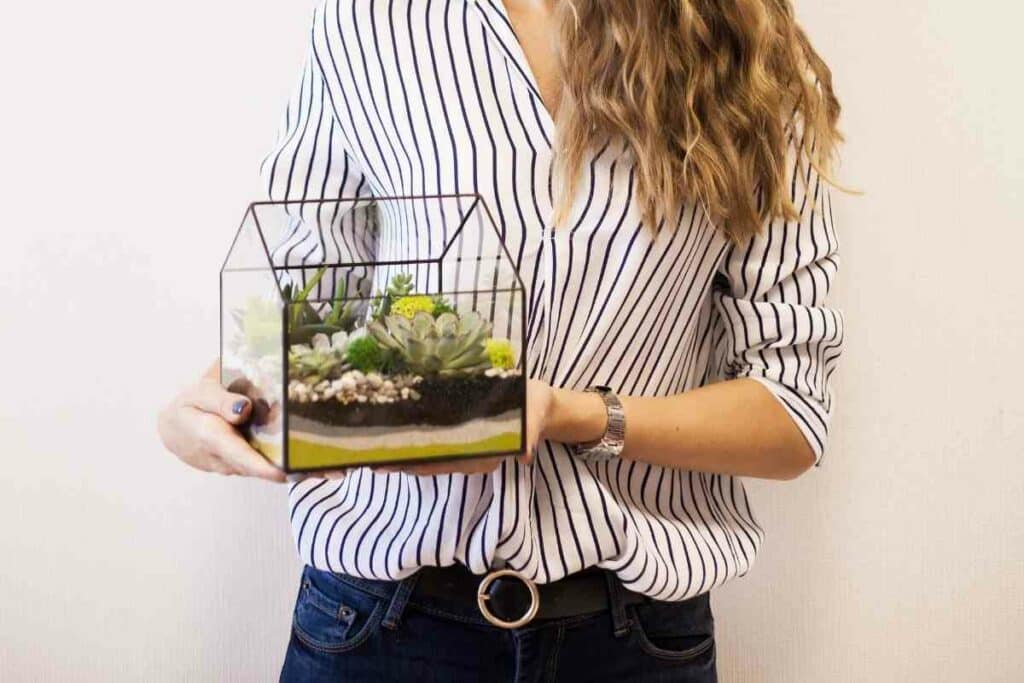
We think succulents are one of the best choices for an allergy-friendly because:
- They don’t shed fibers or dander
- They produce minimal pollen
- They have smooth surfaces and thick cuticle
These 3 qualities mean there is little to irritate someone with sensitivities.
These low-maintenance plants can sit wherever you want and their fleshy leaves and color make an outstanding display.
Keeping a pet succulent has these additional benefits for the allergy sufferer
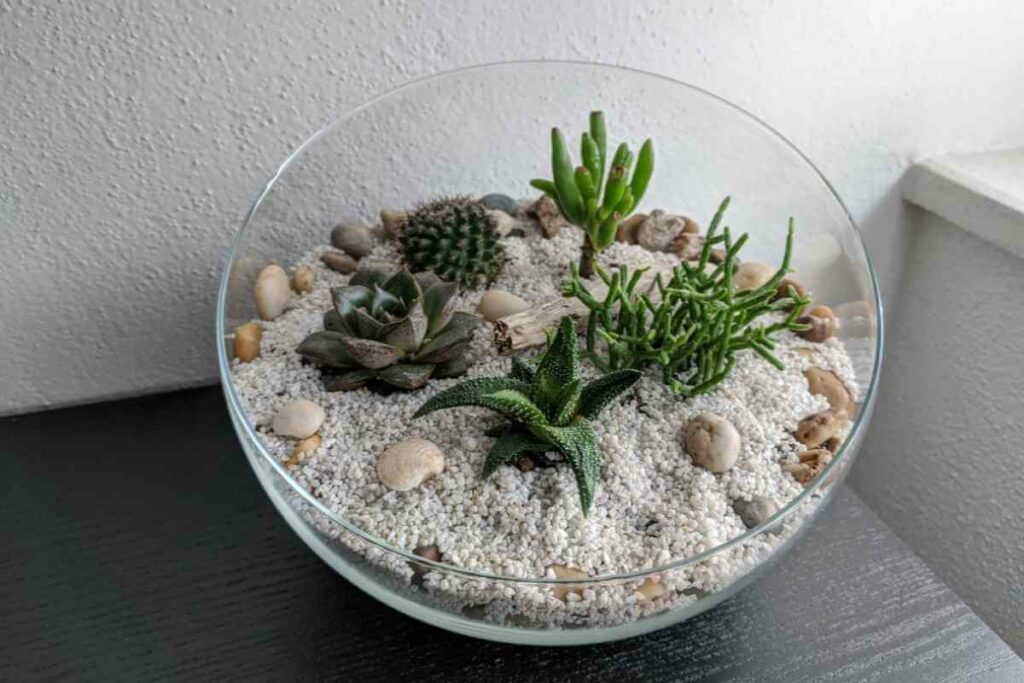
Succulents are not only generally safe around people with allergies, but they also can help support their well-being.
Here are 5 reasons to make a succulent your new housemate.
Reason #1 – Your hardworking succulent will release oxygen at night
Unlike many plants that respire at night, succulents release oxygen during the night-time hours meaning that it refreshes your air while you sleep.
This makes them a supportive choice of plant for people with respiratory allergies who want to have a good night’s sleep.
Aloe Vera in particular is known for the high levels of oxygen it produces.
Reason #2 – Succulents are effective air purifiers
Succulents are effective at cleaning the air of toxins that can upset respiratory allergies.

NASA has demonstrated snake plant (Mother In-law’s tongue) can remove toxins that include:
- Nitrogen oxide
- Trichloroethylene
- Volatile organic compounds
- Xylene
- Formaldehyde
- Benzene
This is excellent as these respiratory irritants are present in a variety of substances and items like synthetic fabrics, smoke, and paper.
Reason #3 – Your succulent could help prevent allergy flare-ups
Plants release a significant amount of water into the environment and the same will be true of a succulent in your home.
The humidity that succulents generate is ideal for creating a positive environment for chest or skin complaints that can flare in dry conditions.
Reason #4 – Succulents promote wellbeing
Plants are known to be beneficial for mood and help people feel calmer and more relaxed in their environment.
Studies have found that having plants in offices can reduce self-reported sick leave, so they certainly can have a beneficial affecting the home.
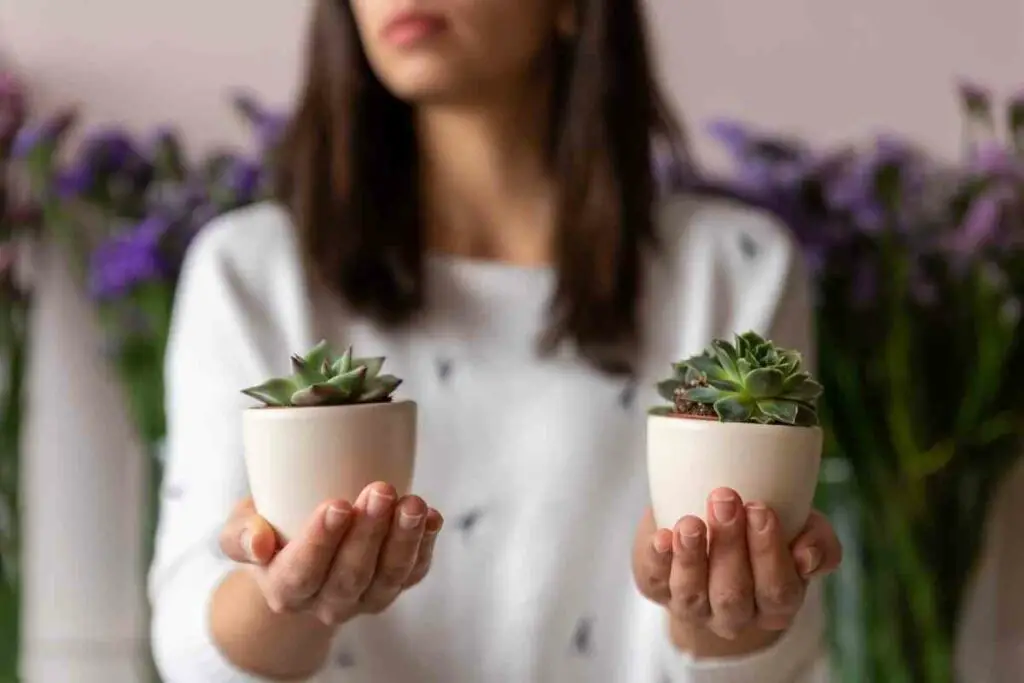
Heightened emotions and anxiety in particular can drive inflammatory conditions like skin allergies or asthma.
Having the calming sight of plants may improve these effects.
Succulents can also help people during their recovery, reducing flu-like symptoms.
Having some cheerful succulents around your room can aid convalescence with patients requiring less pain relief in studies.
Reason #5 – Did you know that succulents can help you focus?
Having succulents in your environment can improve your concentration.
If you place a few of these incredibly moreish plants around your desk, you may benefit from increased attentiveness which can help you focus on tasks.
4 beautiful succulents that are great for allergies
1. Aloe vera
Though aloe vera can cause skin sensitivities, its health benefits are so many and profound that no list for allergy sufferers would be complete without it.
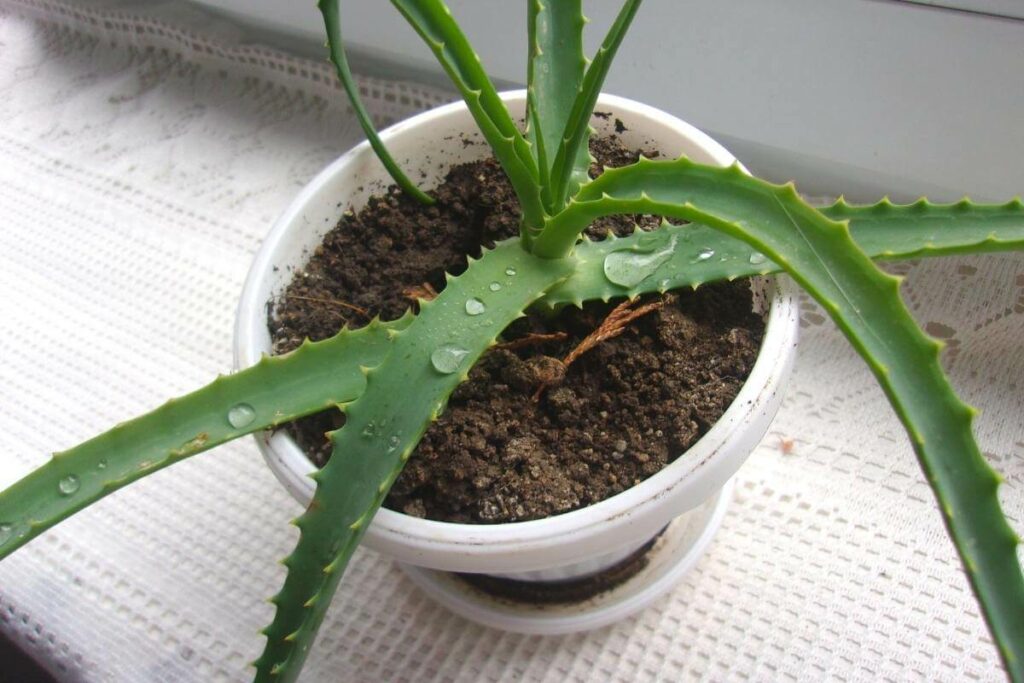
It is an effective air purifier, taking allergens and toxins out of the air and releasing oxygen continuously into your home.
It can be topically applied for a variety of skin conditions and even ingested for gastrointestinal health.
2. Jade
Crassula ovata is also known as the money plant is a classic succulent that will grow and grow and grow to an old age if you treat it right.
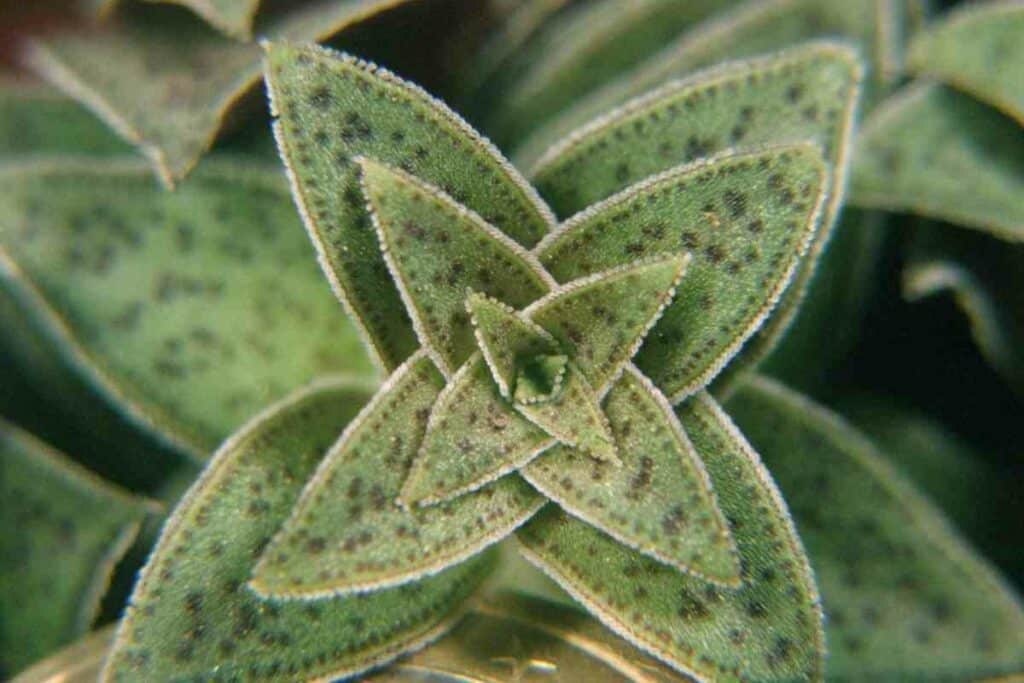
It has a thick rubbery stem and thick ovate green leaves.
There are many varieties of jade plants to choose from so if you would like a pop of color or a specific shape of plant, you have plenty to choose from
3. Burro’s Tail
Sedum morganianum, the donkey tail, or burro’s tail is an unforgettable succulent that will hold your attention and liven any room.
This long-stemmed Crassula variety has interesting blue-green leaves that produce from the stems like fat claws.

It trails beautifully as its stems are up to 60 cm long. Hang this succulent out of direct sunlight, which can burn the leaves.
It can produce small pink or purple flowers at the end of its stems, but flowers rarely.
4. Hens and Chicks
This classic succulent (Sempervivum tectorum) is also known as the houseleek and is a trendy addition to any home.
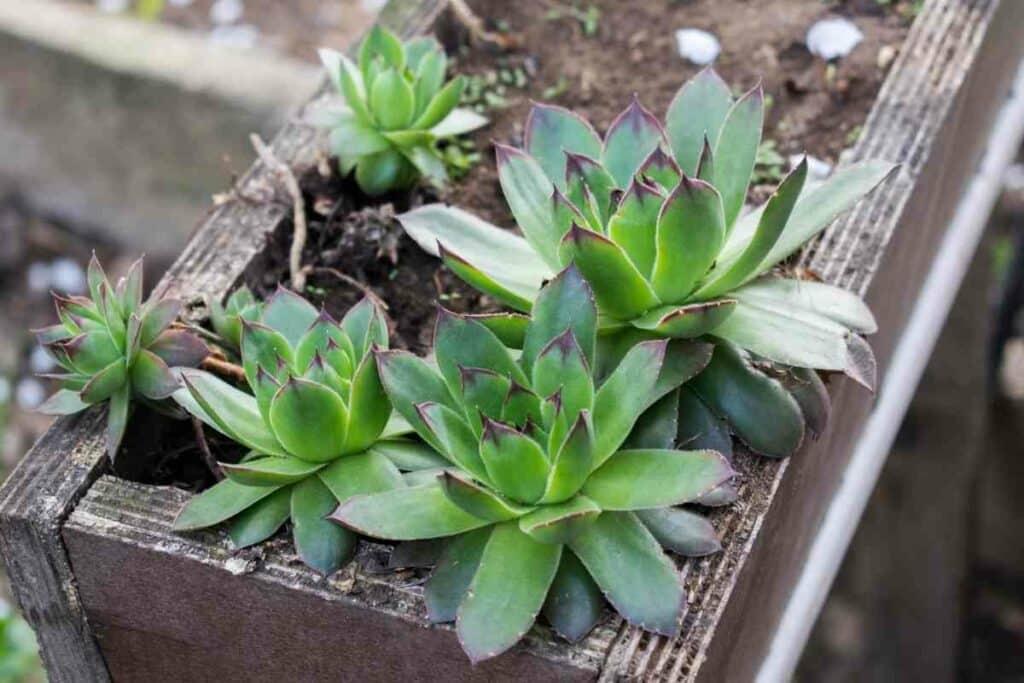
It gains its name from the central rosette of leaves, called the ‘hen’, which is surrounded by the constellation of petals known as the ‘chicks’.
This pretty plant will thrive just as well outdoors on a sunny patio as in your warm room.
It’s important to note that some succulents can cause allergy
Though succulents are some of the most hypoallergenic plants you can get, there are some varieties that people can react to.

Just about anything can cause an allergy so take care when handling your succulents, especially if its leaves break, and there is contact with the sap.
- The sap producing Euprobia variety can cause a reaction in people who are allergic to latex.
- Though highly beneficial to many people living with allergy, aloe vera can cause contact dermatitis with irritation and redness.
Rounding up
If you have allergies, succulents are one of the best plant varieties you could welcome into your home.
These beautiful plants will transform your environment in a variety of ways.
Choose from some of the beneficial plants we’ve shared to enjoy a refreshed and calming home.


